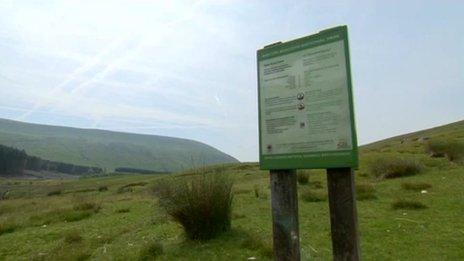SAS selection deaths: Grieving father says 'processes failed'
- Published
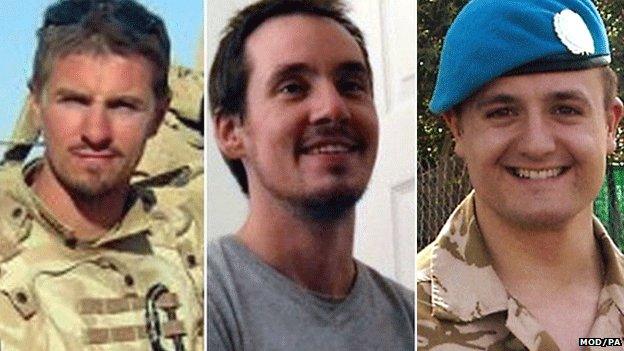
Cpl James Dunsby, L/Cpl Edward Maher and L/Cpl Craig Roberts died in July 2013
The father of a reservist who died after attempting an SAS selection exercise in the Brecon Beacons has told an inquest processes "failed" that day.
Edward Maher was questioning the soldier in charge of risk assessment during the exercise in July 2013.
He said instructors did not notice for nearly an hour that his son, L/Cpl Edward Maher, was "overdue, over time, and off track" on the march.
Fellow reservists L/Cpl Craig Roberts and Cpl James Dunsby also died.
L/Cpl Maher's father questioned why a soldier, known as 1B to protect his identity, did not did not realise his son had gone "off track" until 16:10 BST when he had been expected at the next checkpoint at 15:34 BST.
Soldier 1B explained he had only noticed L/Cpl Maher's tracking device on the screen at that time.
Mr Maher said: "They were overdue, overtime, off track… do you think that your process had failed?"
"At that time sir, no I [didn't]," the soldier replied.
Earlier on Tuesday, soldier 1B told the inquest it was not in his thought process to stop the test because most soldiers were doing well during the 16-mile (26km) test on one of the hottest days of that year.
He told the hearing in Solihull that of the 78 reservists taking part that day, six had withdrawn by early afternoon - two for medical reasons.
But he said he was not concerned because the course was "tough".
"They were all completing the march on time.... at that time the two casualties had recovered within 10 minutes… none of the qualified medics there told me they needed qualified assistance," he said.
"All of the other runners were all within time… that includes Craig, that includes Ed, that includes James.
"Were there alarm bells ringing in my head at that time? No there was not."
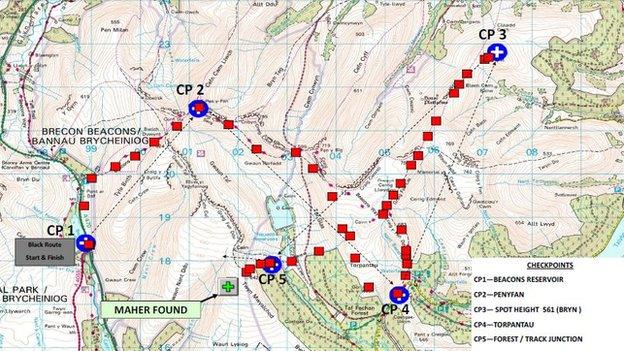
The inquest was previously shown tracking data of the route L/Cpl Edward Maher took on the exercise
David Turner QC, representing Cpl Dunsby's widow Bryher, asked 1B if he would have continued the march if commanding officer 1A had told him about the heat illness casualties.
"I would have looked at what was going on… everyone is pushing themselves… it takes a different type of person to operate within that theatre, at that time I would have said it would not have been within my thought process to stop that march," he said.
Soldier 1B said he told candidates to be aware of the hot weather and rising temperatures, but he did not consider heat exhaustion to be a greater risk than normal.
He also said he was not made aware of new guidance on heat injuries and when an exercise should be stopped, following the death of a marine in similar circumstances in 2008.
The inquest is continuing.
- Published15 June 2015
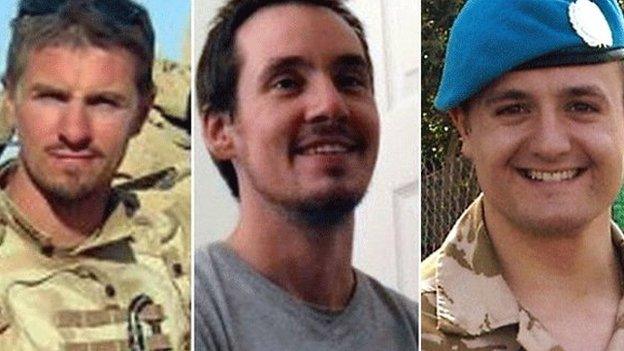
- Published12 June 2015

- Published16 September 2014
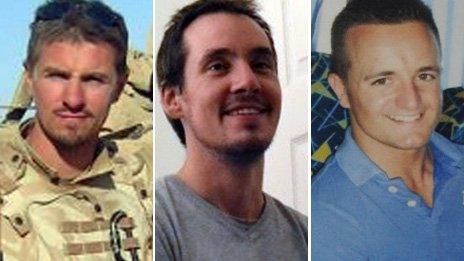
- Published5 June 2015
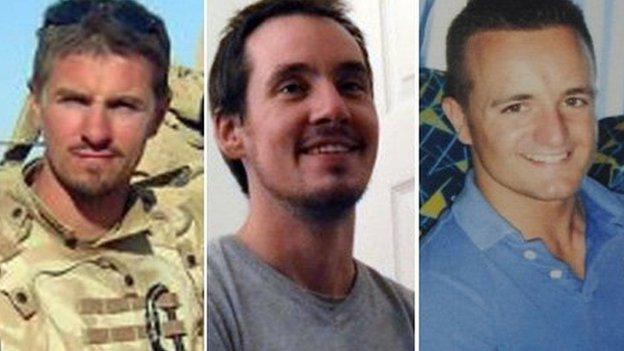
- Published9 June 2015

- Published5 September 2014

- Published1 June 2015
